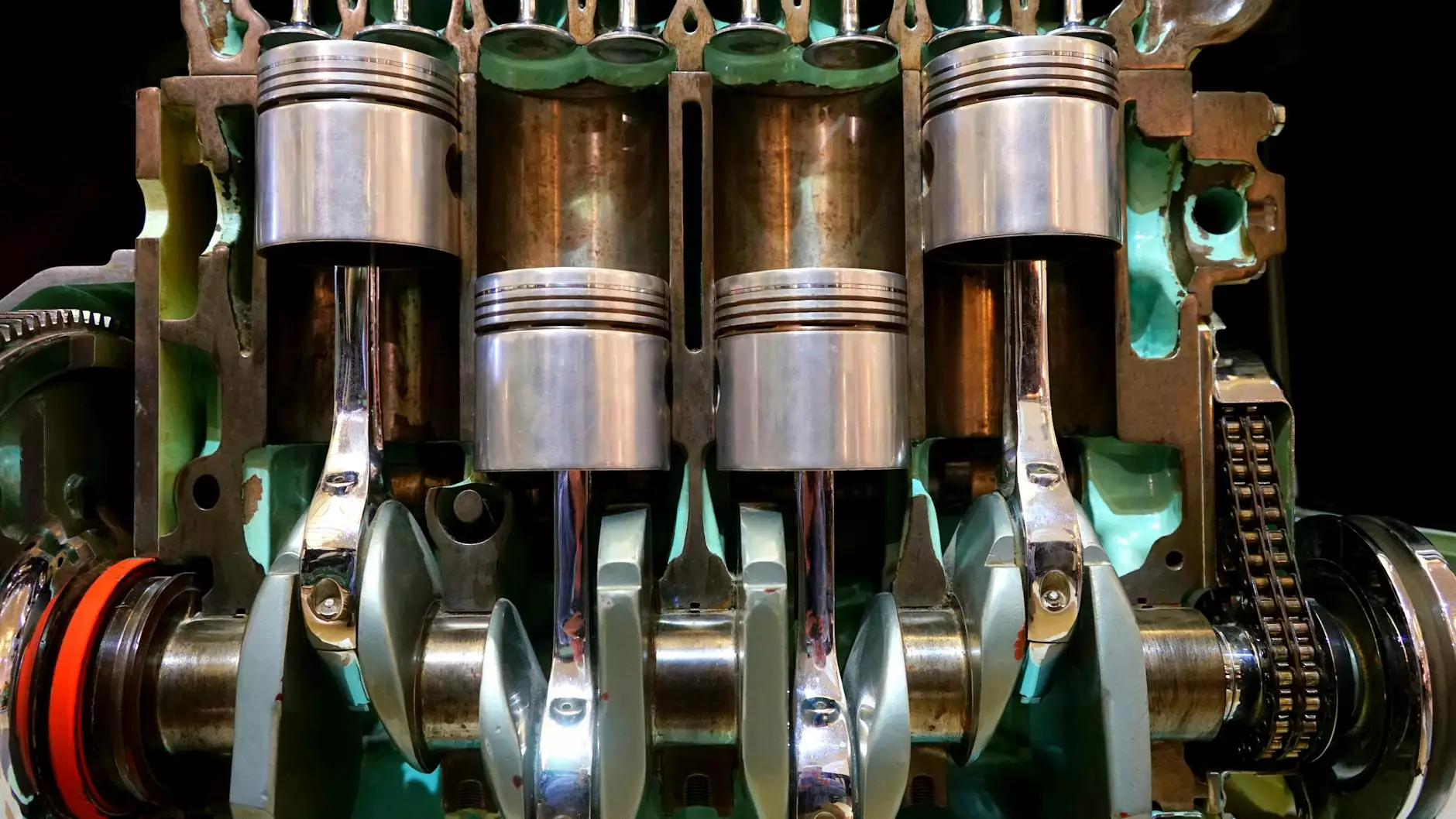Crankshaft Suppliers: Your Comprehensive Guide to Quality and Performance

When it comes to ensuring the efficiency and durability of diesel engines, the importance of a high-quality crankshaft cannot be overstated. Among the various components that make up a diesel engine, the crankshaft plays a crucial role in converting the linear motion of the pistons into rotational motion, which ultimately drives the engine.
Understanding Crankshafts and Their Importance
A crankshaft is a fundamental part of any internal combustion engine that initiates the power generation process. It is a long, cylindrical piece made from high-strength alloy steel or cast iron designed to withstand tremendous forces. The crankshaft must be resilient, meticulously designed, and precisely manufactured to deliver optimal performance under high stress and load conditions.
Key Functions of the Crankshaft
- Converts vertical piston motion into rotational motion: This is the primary function of a crankshaft, transforming the energy produced by the combustion process into usable mechanical energy.
- Maintains balance and stability: A well-balanced crankshaft minimizes vibrations and enhances engine longevity.
- Supports connecting rods: The crankshaft serves as a robust platform where the connecting rods attach, facilitating smooth operation.
- Facilitates timing control: Many crankshafts are equipped with timing gears that synchronize engine operations.
Choosing the Right Crankshaft Supplier
Selecting a reputable crankshaft supplier is critical for ensuring the reliability and performance of your diesel engine. Here are several factors to consider when choosing a supplier:
Reputation and Experience
Evaluate the supplier's reputation: Look for suppliers with a long history of providing high-quality crankshafts and excellent customer service. Consider checking online reviews and testimonials from previous customers to gauge satisfaction levels.
Quality Assurance Processes
Quality control is essential: Ensure that your selected supplier employs rigorous quality assurance processes, including the inspection of raw materials, manufacturing techniques, and finished products. This includes adherence to international standards such as ISO 9001, which focuses on quality management systems.
Product Range
A diverse product range is advantageous: Opt for suppliers that offer a broad selection of crankshafts that cater to different engine types and specifications. This diversity allows for easier sourcing and ensures you can find components that fit your exact needs.
Customization Options
Consider whether the supplier offers customization: Custom crankshaft designs may be necessary for unique engine configurations. A good supplier should work with you to develop custom solutions that meet your specific technical requirements.
After-sales Support
Excellent after-sales service is vital: Choose a supplier who is committed to supporting its customers post-purchase, as prompt service in case of issues can save time and money in the long run.
The Manufacturing Process of Crankshafts
Understanding how crankshafts are manufactured can provide insights into quality and performance: The manufacturing process typically involves several key steps:
Material Selection
The choice of material is critical for crankshaft performance. Common materials include:
- Alloy Steel: Known for its strength and durability.
- Cast Iron: Offers good wear resistance and is cost-effective for mass production.
Forging and Machining
The crankshaft is often forged: This process improves material strength and grain structure. After forging, precise machining processes are executed to create the needed tolerances and ensure a smooth surface finish.
Balancing
Proper balancing of the crankshaft is crucial: It ensures the crankshaft operates smoothly and reduces engine vibrations. This is typically achieved through precision machining and the addition of counterweights.
Finishing Processes
Finishing processes such as grinding and polishing: These processes enhance the crankshaft's overall performance and prepare it for assembly. Surface treatments may also be applied to improve corrosion resistance.
Understanding Common Crankshaft Issues
Even the best crankshafts can encounter issues: Understanding these issues can help in maintaining optimal engine performance. Common problems include:
- Crankshaft Wear: Over time, crankshafts can wear down due to friction, leading to decreased performance.
- Crankshaft Damage: External factors such as improper installation or impact can cause significant damage.
- Vibration Issues: Improper balancing can lead to excessive vibration, adversely affecting engine performance.
Why Quality Matters in Crankshaft Sourcing
The quality of the crankshaft directly influences the overall performance of the engine. Investing in high-quality crankshafts from reputable suppliers minimizes maintenance issues and extends engine life, ultimately saving money in the long run. High-quality crankshafts enhance engine power, improve fuel efficiency, and ensure a smoother ride.
Client Diesel: Your Trusted Crankshaft Supplier
client-diesel.com is a leading provider of diesel engine parts, specializing in high-quality crankshafts. With years of experience in the industry, we pride ourselves on delivering exceptional products and services. Our commitment to quality and customer satisfaction makes us a preferred choice for businesses seeking reliable crankshaft suppliers.
Our Offerings:
- High-Quality Crankshafts: We provide crankshafts made from premium materials that ensure durability and performance.
- Customization: We work with clients to develop custom crankshaft solutions tailored to specific engine requirements.
- Technical Support: Our expert team provides comprehensive support, helping our clients make informed decisions about crankshaft sourcing.
- After-Sales Service: We stand by our products, offering exceptional service to ensure our clients are satisfied.
The Future of Crankshaft Technology
As technology advances, so does crankshaft design and manufacturing. Innovations in materials, such as composites and advanced alloys, promise to deliver lighter, stronger crankshafts. Additionally, advancements in manufacturing techniques like 3D printing and advanced machining are set to revolutionize the way crankshafts are produced, providing even greater precision and customization for performance-oriented engines.
Embracing Innovation
Staying ahead in the crankshaft supply industry requires embracing innovation: Companies that invest in new technologies will be able to offer superior products that meet the ever-evolving demands of diesel engine performance. This competitive edge not only benefits suppliers but also enhances the overall performance and efficiency of engines used in various applications.
Conclusion
As you seek to procure crankshafts for your diesel engines, remember that selecting the right crankshaft supplier can significantly impact performance and reliability. Prioritize quality, reputation, and customer support when making your decision. Partnering with a reliable supplier like client-diesel.com guarantees you will receive top-notch products tailored to your specific needs. With the right crankshaft, you are not just investing in a component; you are ensuring the longevity and efficiency of your entire diesel engine system.



